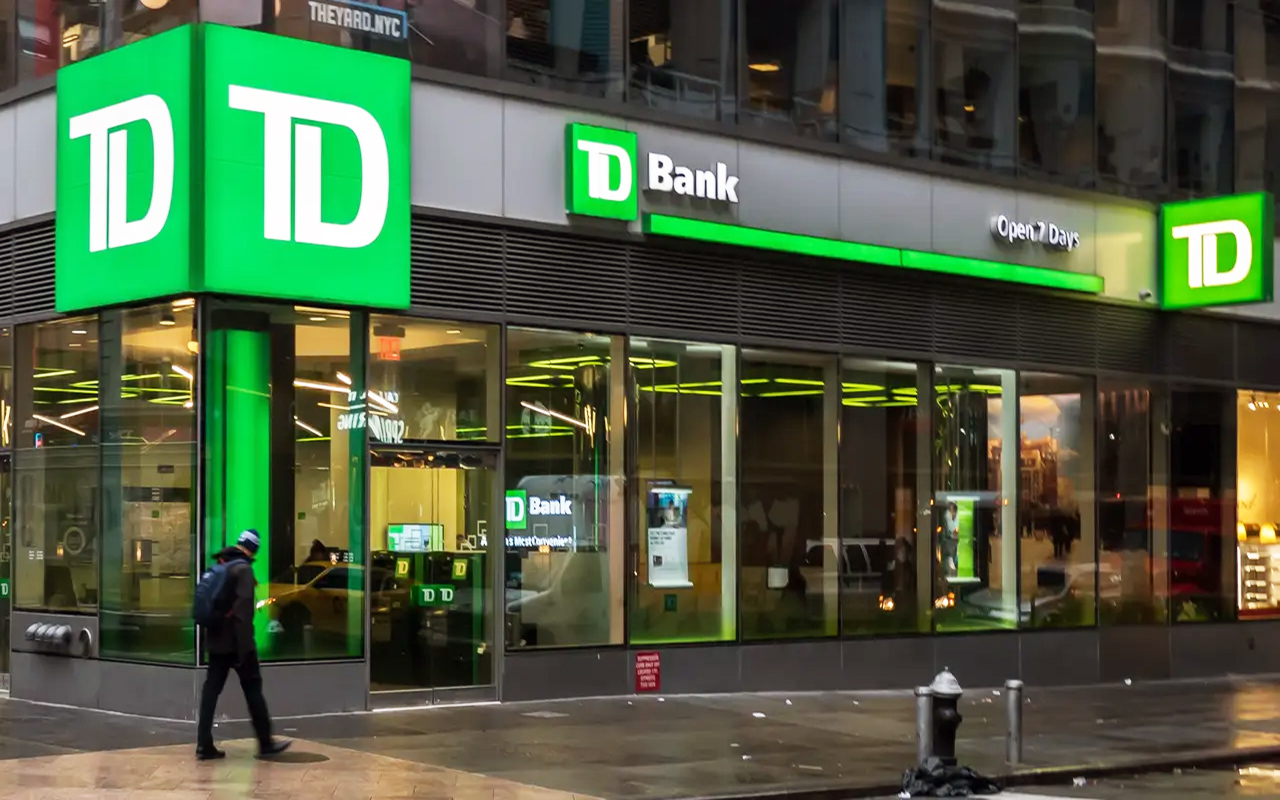
TD Bank Faces Historic $3 Billion Fine and Growth Cap Over Money Laundering Violations
Canadian bank admits to anti-money laundering failures, subjected to largest-ever penalty under U.S. Bank Secrecy Act
Toronto-Dominion Bank, better known as TD Bank, has been hit with a massive $3 billion penalty after pleading guilty to significant violations of U.S. federal anti-money laundering and banking transparency laws. This historic case has implicated the bank in facilitating drug trafficking networks, with its failure to monitor trillions of dollars in transactions allowing criminal activity to thrive within its operations. The bank's penalties include not only fines but also strict limitations on its future growth, marking a significant chapter in U.S. financial regulatory enforcement.
The Charges and the Settlement
On Thursday, TD Bank admitted to failing to meet the rigorous standards set by U.S. laws designed to prevent money laundering. Federal officials, including the Federal Reserve and the Office of the Comptroller of the Currency (OCC), announced that the bank had allowed a subsidiary to be used by criminal networks to launder hundreds of millions of dollars derived from illegal drug trafficking.
Between 2018 and 2024, TD Bank allegedly failed to monitor an astounding $18.3 trillion in customer activity. As a result, three significant money laundering operations were able to exploit TD Bank's lack of oversight, moving millions of dollars through its accounts. Federal authorities emphasized that this case represents one of the largest breakdowns in anti-money laundering (AML) compliance in U.S. banking history.
The consequences for TD Bank extend beyond the $3 billion fine. Under the terms of the settlement, the bank will face a cap on its future growth. Its total assets will be frozen at $434 billion — its value as of September 30, 2024. However, if TD Bank fails to meet additional compliance conditions outlined in the settlement, its asset cap could be reduced by as much as 7 percent annually.
“This is a difficult chapter in our bank’s history,” said Bharat Masrani, TD Bank Group President and CEO. “We have taken full responsibility for the failures of our U.S. AML program and are making the necessary investments and enhancements to prevent these mistakes from happening again. These failures occurred on my watch, and I sincerely apologize to our stakeholders.”
Criminal Schemes Exposed
The criminal activities enabled by TD Bank’s failures were vast and varied. In one instance, over $470 million was laundered through TD Bank branches in the U.S., with the scheme’s operators bribing TD Bank employees with more than $57,000 in gift cards. This specific case represented a glaring lapse in the bank’s internal controls, as TD Bank’s systems failed to detect the fraudulent behavior of its own employees until law enforcement took action.
Another scheme involved five TD Bank employees who conspired with drug traffickers to open accounts that facilitated the transfer of $39 million in drug proceeds to Colombia. Despite internal red flags, the bank did not recognize the illegal activity until the arrests were made. U.S. Attorney General Merrick Garland did not mince words, stating, “TD Bank created an environment that allowed financial crimes to flourish. By making its services convenient for criminals, it became one.”
The Department of Justice (DOJ) also announced that 24 individuals were being prosecuted for their involvement in money laundering schemes that moved more than $670 million through TD Bank accounts. In addition, two TD Bank employees were charged with conspiring to facilitate the illegal activity. Garland highlighted the scope of the failure, emphasizing that 92 percent of TD Bank’s transactions went unmonitored between January 2018 and April 2024.
Unprecedented Penalty and Growth Cap
In addition to the historic $3 billion penalty, TD Bank’s plea marks the first time a major bank has admitted to conspiracy to commit money laundering in violation of U.S. law. This plea is significant not only because of the financial penalties but also because it could restrict TD Bank’s ability to compete in the U.S. market. The bank now faces strict limitations on opening new branches, entering new markets, or launching new products without explicit approval from the OCC.
The DOJ hailed the settlement as a strong enforcement of U.S. anti-money laundering laws, but critics were quick to question whether the penalties were sufficient. Senator Elizabeth Warren (D-Mass.), a vocal critic of the banking industry, tweeted, “$3B seems like a lot, but to big banks like @TDBank_US, it’s just the cost of doing business. This settlement lets bank executives off the hook for allowing TD to be used as a criminal slush fund.”
RELATED CONTENT
Warren’s comments echo a broader frustration among banking industry critics who feel that regulators have not done enough to rein in misconduct by the world’s largest financial institutions. She has long called for stronger measures against banks that violate U.S. laws, including breaking up major players like Wells Fargo in the wake of similar scandals.
The penalties against TD Bank are reminiscent of the $1 billion fine levied against Wells Fargo in 2018 for its own series of scandals, including the opening of fraudulent accounts. In Wells Fargo’s case, the bank was subjected to an asset cap, preventing it from growing beyond $1.95 trillion. Similarly, TD Bank’s asset cap could impede its ability to expand operations and remain competitive, particularly in the lucrative U.S. market.
Regulatory Reforms and Compliance Mandates
In addition to the growth cap, TD Bank is required to overhaul its compliance program to meet U.S. legal standards. The settlement stipulates that the bank must relocate parts of its anti-money laundering compliance operations to the U.S. and establish a new office dedicated to addressing these concerns. This move is designed to ensure that TD Bank is better equipped to meet U.S. regulatory requirements and prevent future violations.
Moreover, the OCC will have direct oversight over TD Bank’s ability to expand into new markets or offer new financial products. This requirement is intended to give federal regulators greater control over the bank’s operations and ensure that any future growth aligns with stringent compliance standards.
While TD Bank has committed to these reforms, the damage to its reputation could linger for years. Financial analysts have noted that the bank’s standing among investors and clients may be significantly impacted, especially as the penalties and legal scrutiny continue to unfold.
TD Bank’s guilty plea and the massive financial penalties imposed represent a watershed moment in the enforcement of U.S. banking laws. However, questions remain about whether this case will lead to broader regulatory changes or signal a shift in how large financial institutions are held accountable for misconduct.
For now, TD Bank will need to focus on rebuilding its compliance program, navigating the restrictions imposed by its growth cap, and restoring trust with its clients and shareholders. Whether it succeeds in doing so, and how other banks respond to this landmark case, remains to be seen.











LEAVE A COMMENT:
Join the discussion! Leave a comment.